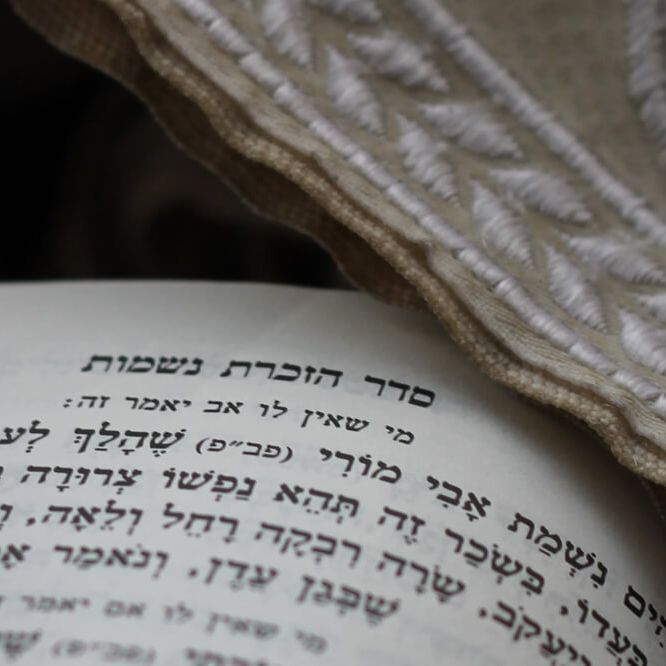Odds are that Yom Kippur (the Jewish “Day of Atonement”) does not loom large on your radar. Perhaps you know it only as one of the holidays always pre-printed on your calendar. Perhaps you are privileged to know practicing Jewish friends who have modeled for you the significance of this holiday within the Jewish tradition. Or maybe you have never heard of it until now! Regardless of your starting point, a deeper understanding of Yom Kippur is valuable for Christians, serving to point us to our Savior.
Underneath its detailed sacrifices and rituals, Yom Kippur offers Christ-followers two invitations and a reminder: an invitation to remember both the holiness of God and his longing to be with his people; an invitation to stand in awe of our singular Savior; and a reminder that Christ has dealt with both our guilt and our shame.
The Holiness and Longing of God
Even though his own creatures had rebelled against him, our God continually offered provisions for his people to know and be near to him. The holy God who has nothing to do with unrighteousness loves an unrighteous people. The temporary solution to this cosmic tension was the Day of Atonement as described and prescribed by Leviticus 16.
Unlike the prevailing gods of the surrounding nations, the God of Israel was not capricious. He offered a trusted way for the high priest to come into his presence to atone for his own sins and the sins of the people whom he served (Lev. 16:1–10).
Once a year, the high priest was to follow careful commands in order to come into the holy of holies (the innermost part of the temple where God’s glory dwelt). While the list of detailed instructions may sound like overkill to a modern reader, they remind us that the God whom we serve is both transcendent (holy and other than us) and immanent (near to us). Coming into the presence of a holy God as an unholy people required the shedding of blood, yet God provided the sacrificial system because this same holy God longed to be in relationship with his people.
Our Singular Savior
The high priest had to do this year after year because he and the people continued to sin year after year. The writer of the book of Hebrews wanted early Jewish believers to understand that role of high priest and his yearly atonement was always intended to point to Christ. He reminded Jewish believers that “it is impossible for the blood of bulls and goats to take away sins” (Heb. 10:4). There were not chairs in the temple because the work of atonement before Christ was never finished; however, “when Christ had offered for all time a single sacrifice for sins, he sat down at the right hand of God” (Heb. 10:12).
Christ is both the perfect priest and the perfect sacrifice! The work of atonement is done, “for by a single offering he has perfected for all time those who are being sanctified” (Heb. 10:14).
Our Guilt & Our Shame
Part of the Jewish Day of Atonement required twin goats, one of which would be killed as an offering and one of which would be sent away bearing the sins of the people. The goat sacrificed to atone for the guilt of God’s people dealt with the reality of their sin, while the goat sent dealt with the effects of our sin (shame). After killing the first of the goats, the high priest would speak the sins of the people over the second goat. Then he proceeded to send the goat away into desolation, darkness, and loneliness.
The reality of our guilt often leads us to the experience of shame. Shame pulls us away from community and into despair and darkness. It tells us that we don’t belong and don’t have a place. The second goat shows us that God not only forgives us of our guilt but also deals with our shame. As the psalmist wrote, “As far as the east is from the west, so far does he remove our transgressions from us” (Ps. 103:12).
Our Christ fulfilled the proximate work of both goats once and for all, in one sacrifice. Now, we are invited to draw near the throne of grace continually (Heb. 4:16). We are invited to trade our shame for his delight in us as adopted sons and daughters (Gal. 4:6; 1 John 3:1).
May Yom Kippur be more to you than a fine print holiday on your calendar. This year, may the Day of Atonement point you to the day Christ fully atoned for us on the cross.






